It’s no secret that getting adequate water is one of the biggest challenges farmers face. With unpredictable weather patterns and the effects of climate change, relying solely on rainfall to water your crops just aren’t cutting it anymore.
This is where irrigation systems come in – they’re a game-changer that have enabled farmers to grow their crops without depending on the weather.
However, not all irrigation systems are created equal, and choosing the right one for your farm is crucial to its success.
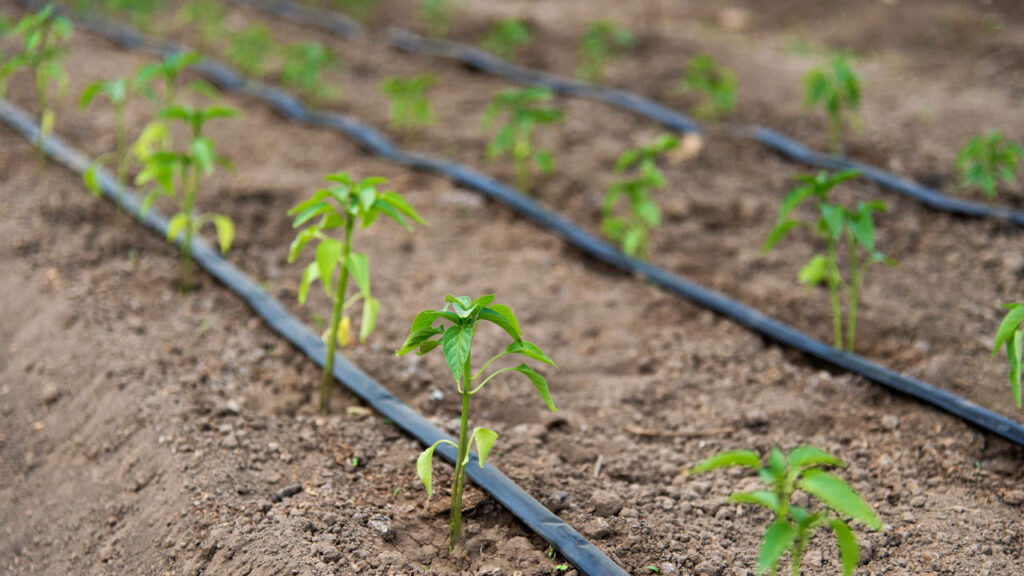
According to an article on Agweb, it states “Answer irrigation questions wrong and cripple a crop” Well, it means that when it comes to irrigation, you just can’t afford to get it wrong. That’s why it’s crucial to be aware of what to look out for when choosing the right irrigation system for your farm. After all, selecting the best irrigation system for your crops could mean the difference between a successful harvest and a failed one.
So let’s dive into the world of irrigation systems and explore some tips to help you select the perfect one for your farm.
But hold on, before we dive into the tips for choosing the right irrigation system for your farm, let’s take a moment to explore some of the benefits that come with using one.
Amazing benefits of using irrigation systems on your farm
Control over water supply
Irrigation systems are great because they give you full control over watering your crops. You get to decide how much water your crops receive and when they receive it, instead of leaving it to chance. This ensures that your crops get just the right amount of water they need to grow healthy. This is particularly important during drought periods when traditional watering methods won’t suffice.
Efficient in water usage
They are more efficient in their water usage than traditional irrigation. They deliver water directly to your plant’s root zone, preventing waste and the risk of over-watering. This not only conserves water but also reduces soil erosion and nutrient loss.
Saves time and energy
Irrigation systems are great time-savers and can make your life easier on the farm. Once you have set up your system, it can run automatically, so you can avoid the hassle of manual watering. This gives you more time to focus on other important tasks on the farm, which can boost productivity and profitability. Plus, automated systems can run during non-peak hours to help you save on energy costs.
High crop yield
With the reliable water supply irrigation systems provide, your crops will have everything they need to grow to their full potential and produce high-quality crops. This is especially crucial if farming is your livelihood, as even a slight increase in yield can make a big difference in your profits.
4 things to look out for when choosing the right irrigation system for your farm
So, now that we know how awesome irrigation systems can be for farming, let’s shift our attention to what you should consider when looking for the perfect irrigation system for your farm.
1. Consider the size and shape of your farm
When you’re looking for an irrigation system, it’s important to think about the size and shape of your farm.
Let’s say you have a small farm with a simple shape; in that case, a drip irrigation system could be a good option for you. Drip irrigation systems are easy to set up and maintain, and they use water very efficiently.
On the other hand, if your farm is larger or has an irregular shape, a center-pivot irrigation system might be a better fit.
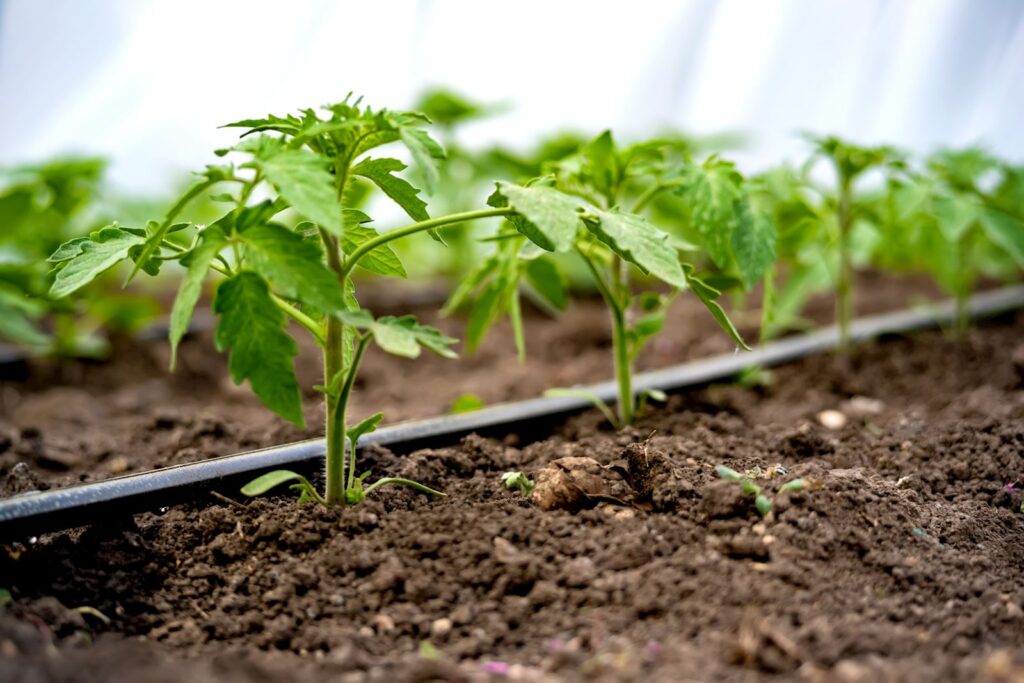
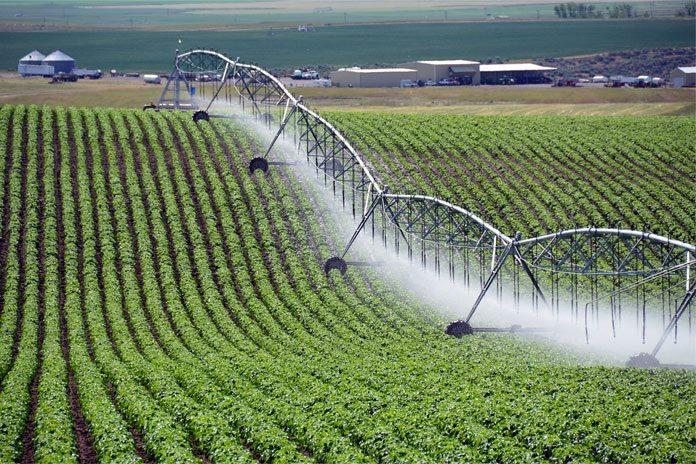
These systems are designed to cover a lot of lands quickly and efficiently, and they can be programmed to follow the contours of your farm. For example, if you have a farm with rolling hills, a center-pivot irrigation system would be able to adjust the water output to ensure that all of your crops get the right amount of water, no matter the slope.
2. Put the type of crops you want to grow into consideration
The type of crops you grow can impact the best irrigation system for your farm. For example, if you grow crops like cassava, which require a lot of water, flood irrigation might be the best option. Flood irrigation involves flooding the fields with water, which helps to saturate the soil and provide crops with the necessary water

On the other hand, if you grow crops like tomatoes or pepper, which are more sensitive to water, a drip irrigation system may be the better choice. Drip irrigation systems can deliver water directly to the roots of the plants, which helps to prevent water from being wasted and reduces the risk of over-watering.
3. Consider water accessibility on your farm
The availability of water is an important factor to consider. If you have a dependable source of water, like a well or a river, you might want to consider a sprinkler irrigation system. This system utilizes pipes and sprinklers to distribute water over a large area, making it suitable for farms with abundant water sources.
But if water is scarce on your farm, you might want to explore drip irrigation or subsurface irrigation systems. Drip irrigation employs tubes to deliver water directly to the plant’s root zone, while subsurface irrigation delivers water directly to the soil.

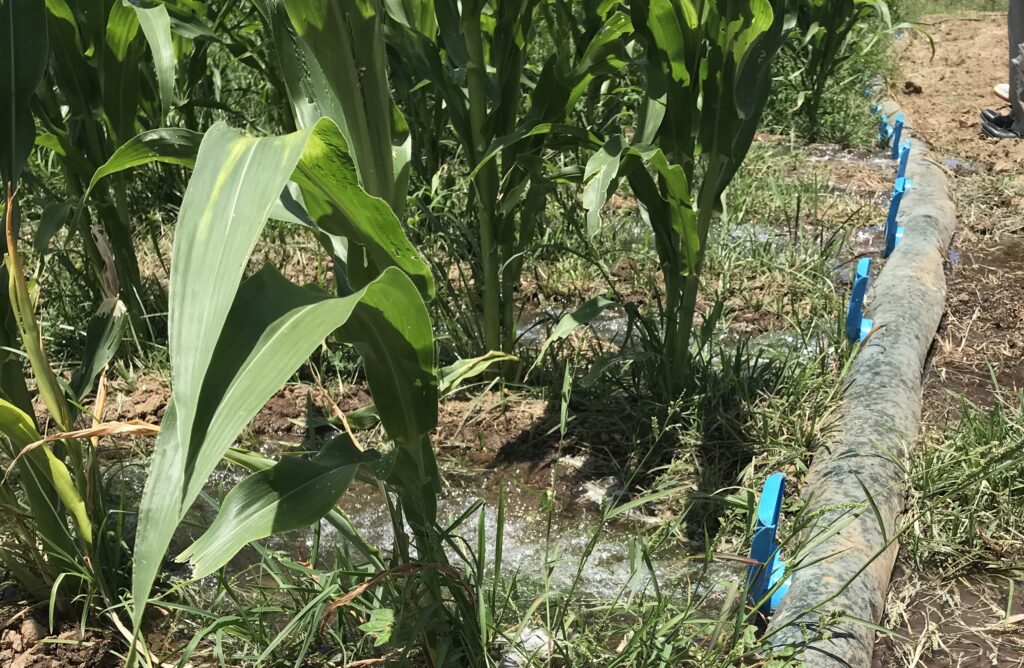
Both of these systems are highly efficient in their water usage and can help you conserve water, making them ideal for farms with limited water resources.
4. Consider the soil type and the topography of your farm
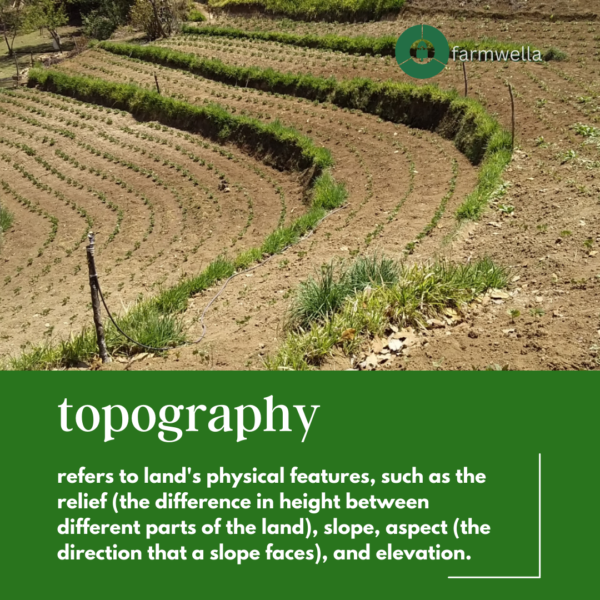
You also need to take into account the type of soil and topography. The type of soil you have and how steep your land is will affect which irrigation system will work best for you.
For instance, if your soil has a lot of clay, it’s essential to prevent waterlogging. You can achieve this by using a subsurface irrigation system that delivers water directly to the roots of your crops.
It’s also crucial to select an irrigation system that’s suitable for the slope of your land. If you have a steep slope, a drip irrigation system might be the ideal choice since it reduces the risk of soil erosion while efficiently watering your crops.
Finally
To sum it all up, if you’re searching for an irrigation system that’s both safe and flexible, then drip irrigation could be the way to go.
However, it’s important to keep in mind that there are many factors to consider when choosing the best irrigation system for your farm, and what works for one farm may not work for another. So, it’s crucial to do your research thoroughly and take note of the tips provided to select the irrigation system that’s tailored to your farm operations.
